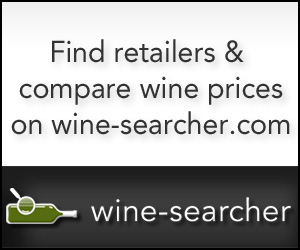
A Server's Perspective:
Harnessing Your Enthusiasm
By Jorge Eduardo Castillo
An important lesson I have learned in the restaurant business regarding wine: Do not over-burden dinner guests with information that really isn't necessary when helping them to make their wine decision.
Many servers and sommeliers will over-describe wines to the point where every last detail about the wine's production is discussed. For example, last week I went out to dinner and asked the server questions about specific bottles (just a habit of mine because I'm curious as to how they will handle the situation). This server was obviously very knowledgeable about wine and went into great detail in describing each bottle. One bottle in particular had him describing the soil, the aging (both years and barrels), the winery's history, Wine Spectator and Robert Parker scores, and even the winemaker's resume. All of this information came from the question: "What do you think about this bottle?"
Now, being a wine buff I was happy to meet someone with similar interests who could enlighten me on facts of which I was unaware. However, 99 percent of his guests probably won't care that the winery had a fire in the late 70s and had to replant everything or that the wine scored 94 in last month's Spectator. There is a tendency in our industry to get a little too descriptive and maybe take wine a little more seriously than it should be. Most diners are casual wine drinkers who want to know one or two facts about their wine at the very most. We always joke at Vino 101, "Learning about wine should be fun, not complicated." To that end, you need to understand that not every guest is looking for an educational experience when they go out to eat/drink. Inundating them with trivial information about a bottle of wine can negatively impact their experience, and consequently your tip. So not only are you working harder, you may be making less money and turning tables more slowly. Not a good strategy.
Below are some strategies that I find to be useful when describing wine:
When describing a wine, stick with only essential information. The grape(s), vintage, flavors, sugar and tannin should be enough to help them make their decision. If they have already ordered food, let them know how you think it may pair with their choices.
Keep anecdotes about the wineries and winemakers to yourself, unless specifically asked. Most people don't want a storyteller as a server or sommelier.
If the guests start digging for more information or are overly enthusiastic about their wine choice, this is when you can impress them with your knowledge. But until prompted, try not to mention that the winery sits on top of a quaint hillside and the grapes are picked at 6:37am.
Enthusiasm about the wine list is a plus, but try to recommend a maximum of three wines to each table. Describe any more than that and the facts get jumbled and they won't remember anything you said. Even I get lost sometimes when a server is rattling off 6 or 7 wines on the list they like.
Stick to the truth. If you don't know about a particular bottling they have interest in, let them know that you are not as familiar with that offering and then find someone who is and find out about it. Don't make things up, don't lie and don't bluff it. In this economy, you do not want someone purchasing something you inaccurately described, returning or hating it and then you have to deal with the consequences.
Try to always have it in the back of your mind that most diners are casual wine drinkers and don't need an 800-word dissertation about each bottle. While you or I might be interested in factoids about each and every winery, the average wine drinker just doesn't always take it that seriously. Gauge your guests and give them appropriate information for what they want to know, not what you may know and want to share.
September 2009
Jorge Eduardo Castillo is a representative of Vino 101, which provides on-line server wine training. Visit www.vino101.com for more details.




